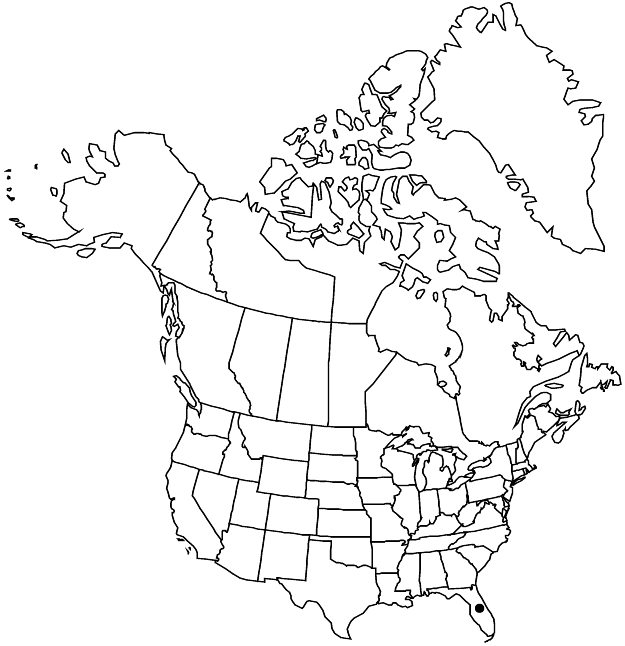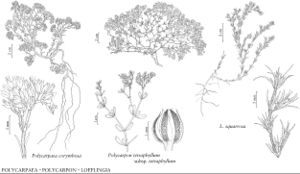Polycarpaea corymbosa
in J. Lamarck and J. Poiret, Tabl. Encycl. 2: 129. 1797.
Stems 6–18 cm, ± pilose. Leaves dimorphic; basal (sometimes absent in older specimens) with petiole 2.5–4 mm, blade oblong-ovate to suborbiculate, 8–12 mm, margins flat, glabrous; cauline subtending fascicles of usually smaller leaves, blade linear, 1–2.5 cm, margins revolute, glabrous or ciliate. Cymes dense. Pedicels 0.8–3 mm. Flowers: sepals 2.2–3.1 mm; petals marcescent, elliptic to ovate, 0.7–1 mm; stigmas nearly sessile. Capsules 1.5 mm. Seeds 0.4–0.5 mm. 2n = 36.
Phenology: Flowering summer–winter.
Habitat: Sandhills, grassy areas, disturbed sites
Elevation: 10 m
Distribution

Introduced; Fla., South America, Asia, Africa, Australia
Discussion
Polycarpaea corymbosa was first found in the sandhills of Tampa, Florida, in 1960 by O. Lakela (1962, 1963). Although she eventually described her plants as a new species, subsequent authors have concluded that the features supposedly distinguishing it lie within the range of P. corymbosa, a widely distributed paleotropical taxon. It is now known from five counties in central Florida.
Polycarpaea corymbosa is morphologically diverse, especially in Africa. While at least five varieties have been described (four since 1975) for distinctive populations in Asia and South America, a thorough study across the range of the species is yet to be undertaken.
K. R. Beena et al. (2000) demonstrated the presence of endophytic fungi in Polycarpaea corymbosa.
Selected References
None.
